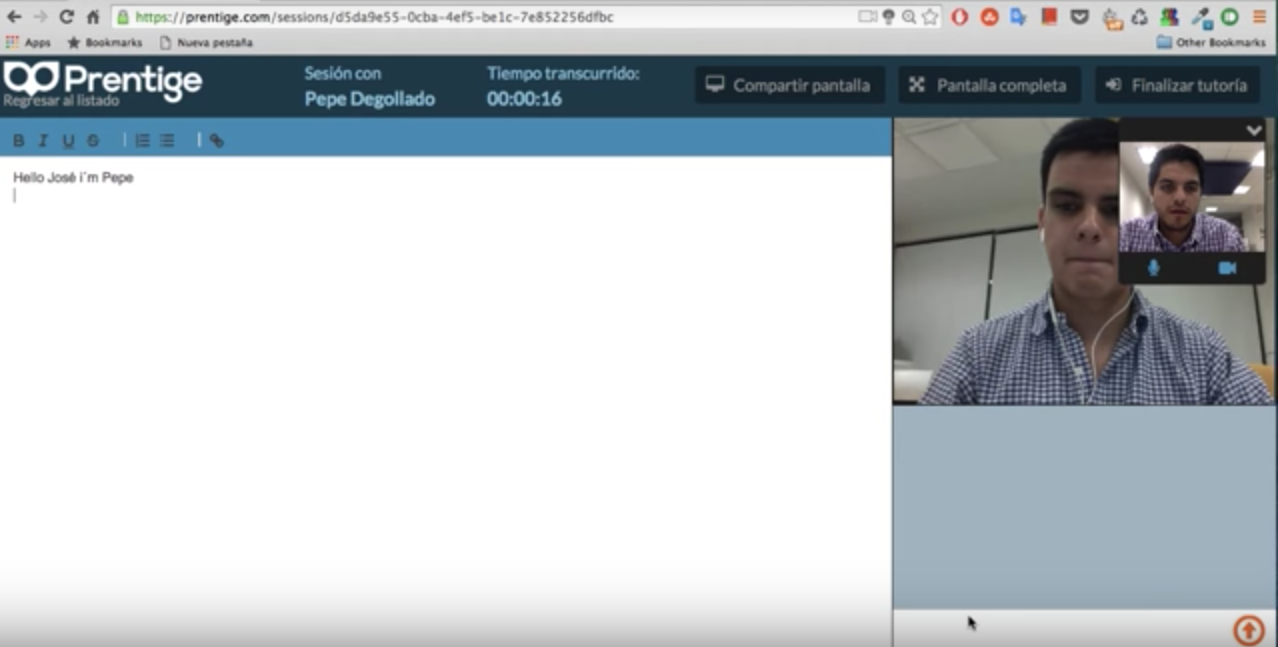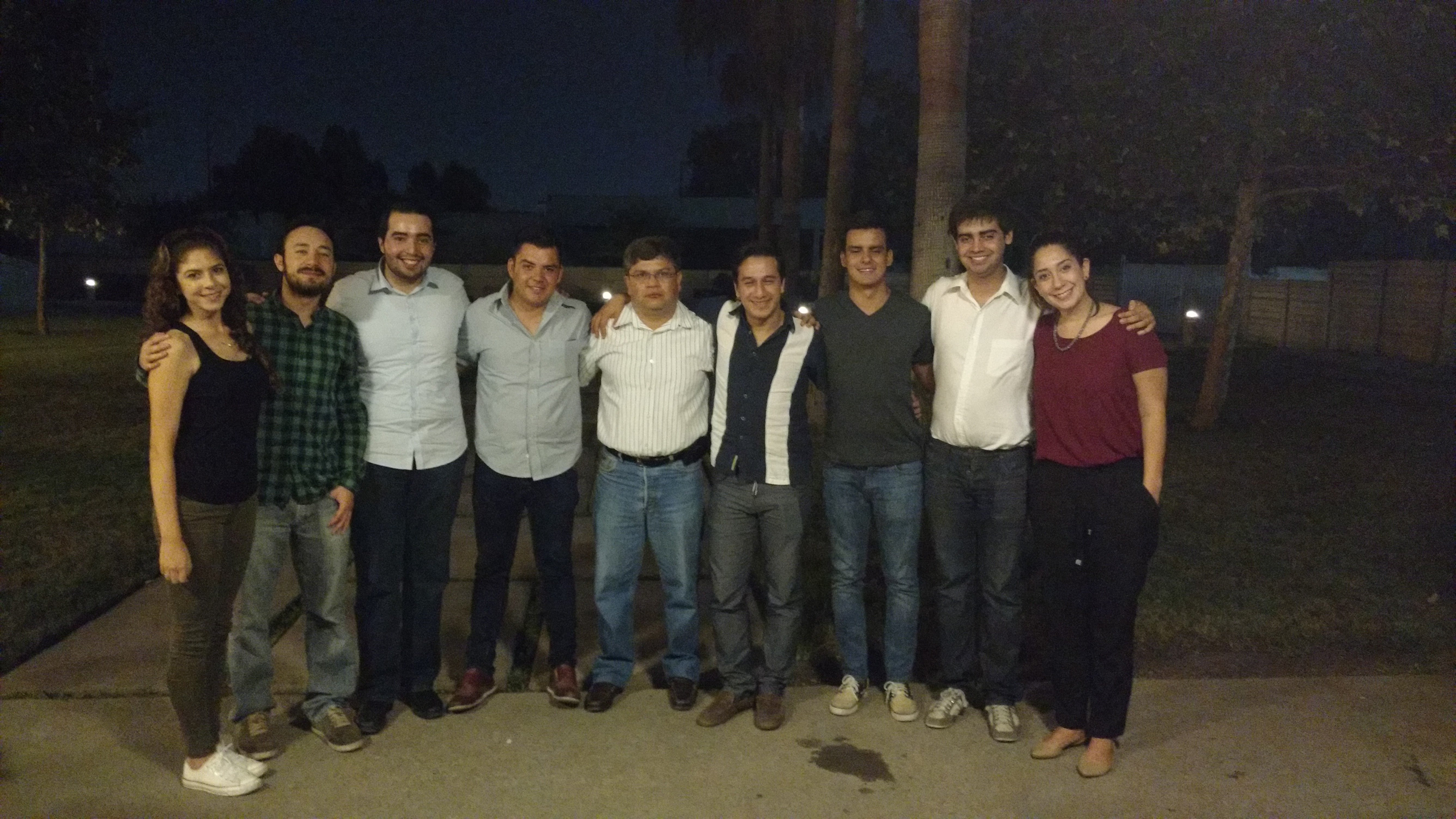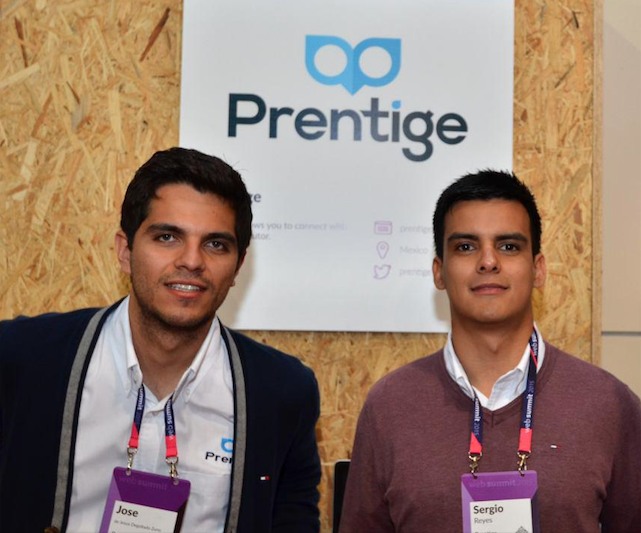In 2014, Sergio Reyes Armas and Jose Degollado were engineering students together at the Technológico de Monterrey. Degollado was taking one of the hardest classes of his college career and bemoaned to Armas that he couldn’t find the help he needed for the challenging work. That same semester, Armas was working on a project for an entrepreneurship class that required him to design a solution for a problem that affects one’s daily life. One day, they shared a conversation that would turn them into co-founders.
“Our conversation became a brainstorm, where Jose and I realized the difficulty of finding help for a specific topic existed not only in Monterrey but in all of Mexico,” says Armas. “That was when we saw an opportunity; many people our age are experiencing this same problem. We put together a business model, and that’s how it started.”
What started was Prentige, an online tutoring platform that allows college students to receive personalized tutoring on-demand.
Prentige enables experts to share their knowledge, and but it is also building relationships. Little by little, we are creating a community. Tweet This Quote
While the vision for Prentige easily unfolded, Armas and Degollado struggled to build the platform in the beginning. Neither of them knew how to code, nor did they have administrative experience. As Armas describes, six or seven months went by of “building lots of hypotheses.”
Yet momentum finally began to build when they went to a conference in Las Vegas and serendipitously met their soon-to-be co-founders.
Leonardo Miron and Macario Oretga also happened to be developing an online tutoring platform in Mexico City. Both men were a few years older, had more experience in startups, and saw the potential in Prentige. After a few months of negotiation, the four united as a team.
How it works is students, generally between the ages of 18 and 22, create a profile, log in, and search for a topic. They receive a list of tutors who are available for that topic, their rates, and their ratings. Students then choose which tutor they want to work with and either start a session or schedule one for later.
During the session, students and tutors communicate through video chat and follow an interactive lesson plan document that allows the students and tutors to take notes in real time.
There is normally a tendency for everyone to be taught the same way. Yet not everyone learns the same way. Tweet This Quote
As for becoming a tutor, the process is straightforward, but the bar is set high in order to target true experts in one’s field. A tutor must fill out an application and submit their CV. Then, if selected, the Prentige team interviews and approves them. Once tutors are approved, they fill out a profile of their availability and areas of expertise.
The tutors receive 86 percent of the tutoring fee based on a per session or per minute basis, yet the people who join Prentige as a tutor find it rewarding in other ways too. “Beyond generating money, these are people who want to share their knowledge and dedicate extra time to that,” says Armas. “Prentige enables experts to share their knowledge, but it is also building relationships. Little by little, we are creating a community.”

During the session, students and tutors communicate through video chat and follow an interactive lesson plan. Photo courtesy of Prentige.
Currently, Prentige has 1700 students and 150 tutors using its platform. On average, students who use Prentige improve their exam scores by 40 percent. The topics covered range from calculus and physics to more career-oriented topics like accounting and statistics. While Prentige currently focuses on topics that students commonly have difficulties with, they hope to develop a more nuanced system where students can find specific topics more easily.
“We never had problems finding tutors,” says Degollado. “The problem was how help students find the right tutors. So right now, we finding ways to optimize the topics,” which ultimately he believes, “will build a more inclusive community.”
Here [in Mexico] there is a fear of paying online. Tweet This Quote
The Prentige team is actively expanding their community in other ways, too. In addition to its direct to consumer model, Prentige also has a B2B model by building internal tutoring platforms with academic institutions. They are currently partnered with their alma mater, Technológico de Monterrey, and plan to partner with more universities this year.

“Prentige enables experts to share their knowledge, but it is also building relationships. Little by little, we are creating a community.” Here, a reunion of some Prentige tutors. Photo courtesy of Prentige.
Continuing to develop Prentige’s B2B model is a goal for the team, but looking at the big picture, their ultimate challenge is tackling people’s fear of new technology. “Here [in Mexico],” Armas explains, “people’s behaviors differ than those [of people] from the United States, who are very accustomed to trying technology. Here, there is a fear of paying online.” Armas and his team are offering the first hour free and designing ways to incentivize users to “lose fear of digital means and seek help there.”
Ultimately, Armas says, the best incentive for using Prentige is that it makes learning personalized. “From elementary school to college, there is a tendency for everyone to be taught the same way. Yet not everyone learns the same way. We want to empower students to learn the way they actually want, and learn what they actually like.”




